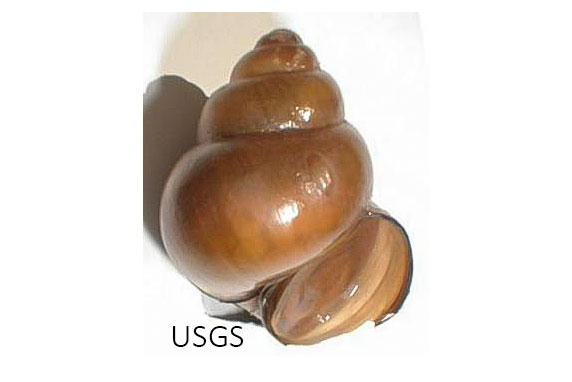| Scientific Name |
(cipangopaludina chinensis) |
| Classification and Permitting Level |
1 - Prohibited Aquatic Nuisance Species |
| Species Description |
Commonly olive or brown with 6-7 whorls, opens to the right side, and has an operculum. Chinese Mystery snails often grow to sizes much greater than North Dakota snails, with some individuals reaching 2.5 inches in length. |
| Preferred Habitat |
Slow-moving rivers or lakes and wetlands with silt, sand, or mud bottoms. |
| Reason for ANS Designation |
Host to many harmful parasites that could affect migratory bird species. Disrupts macrophyte community and alters feeding behaviors of native invertebrates. Large die-offs snails can litter shorelines with undesirable sharp and smelly shells. |
| Place of Origin |
Native to southeast Asia, Japan, and eastern Russia. This species was brought into United States food markets in the late 1800s and has been sold and released in the aquarium trade. |
| Stopping the Spread |
The spread of Chinese mystery snails is primarily through aquarium releases and the transport of adults. When taking equipment out of a lake or stream, inspect it to ensure there is no aquatic vegetation. Snails may attach themselves to vegetation. Properly dispose of aquarium organisms by freezing them for 24 hours before discarding. |
| Additional Information |
USGS Fact Sheet |



